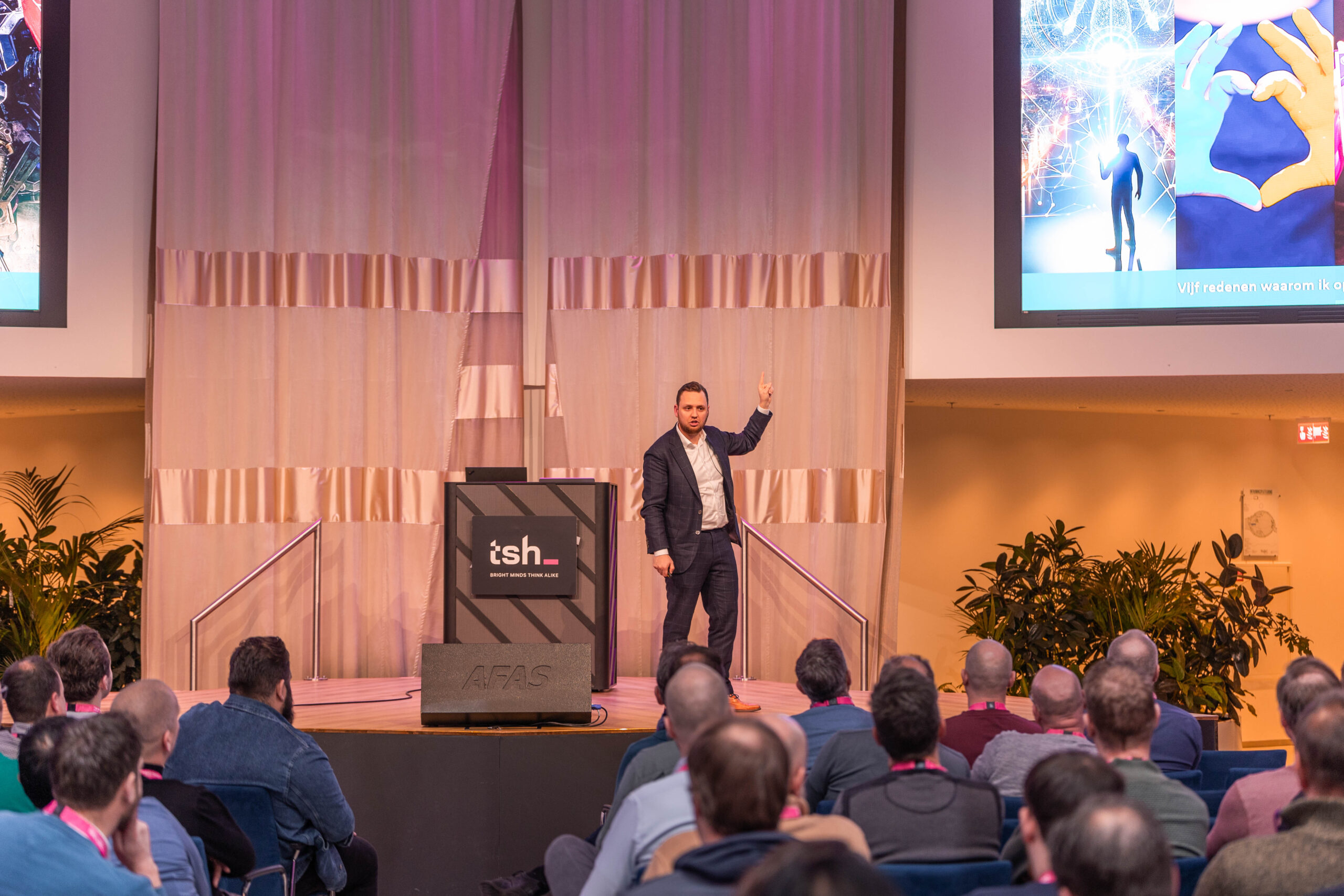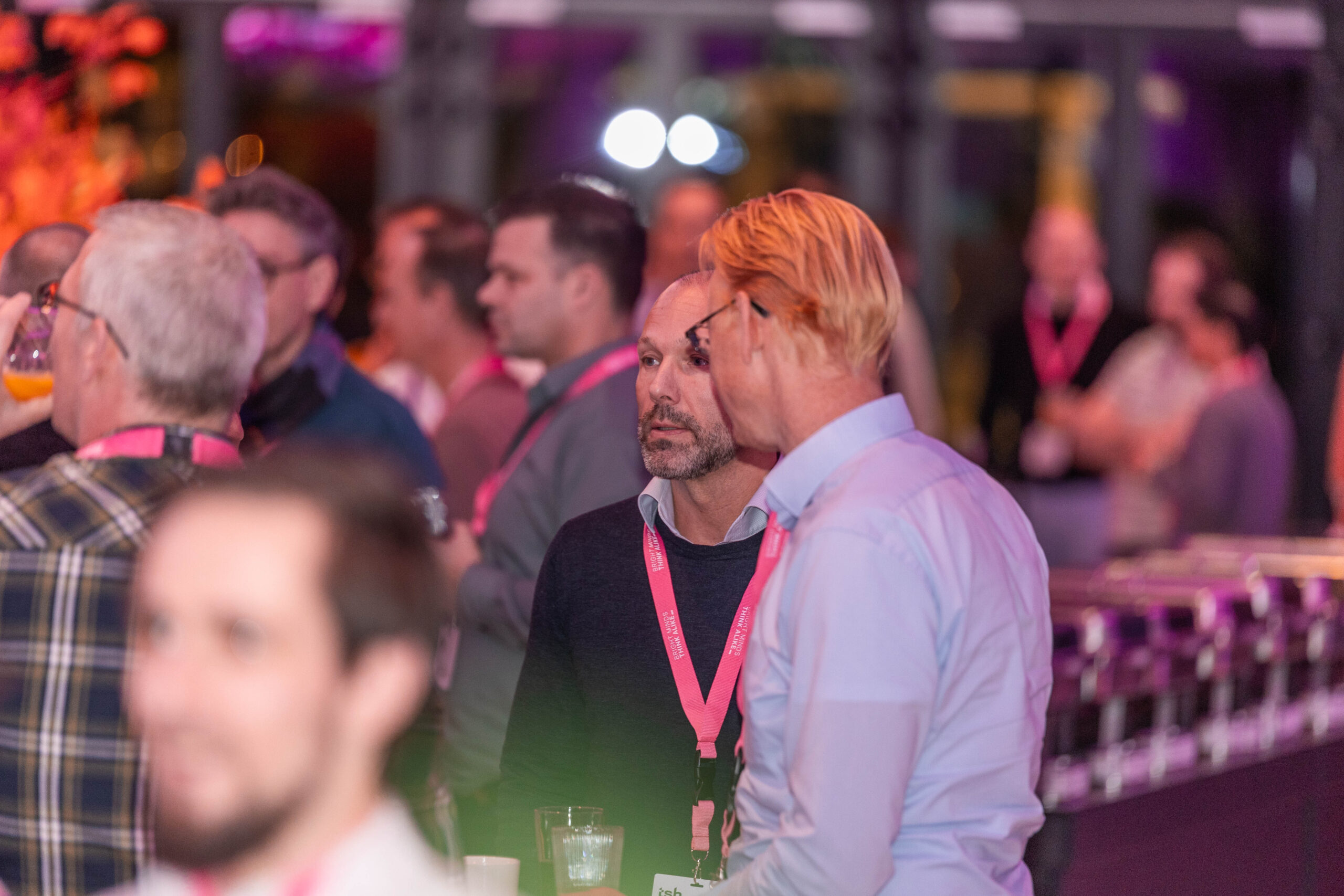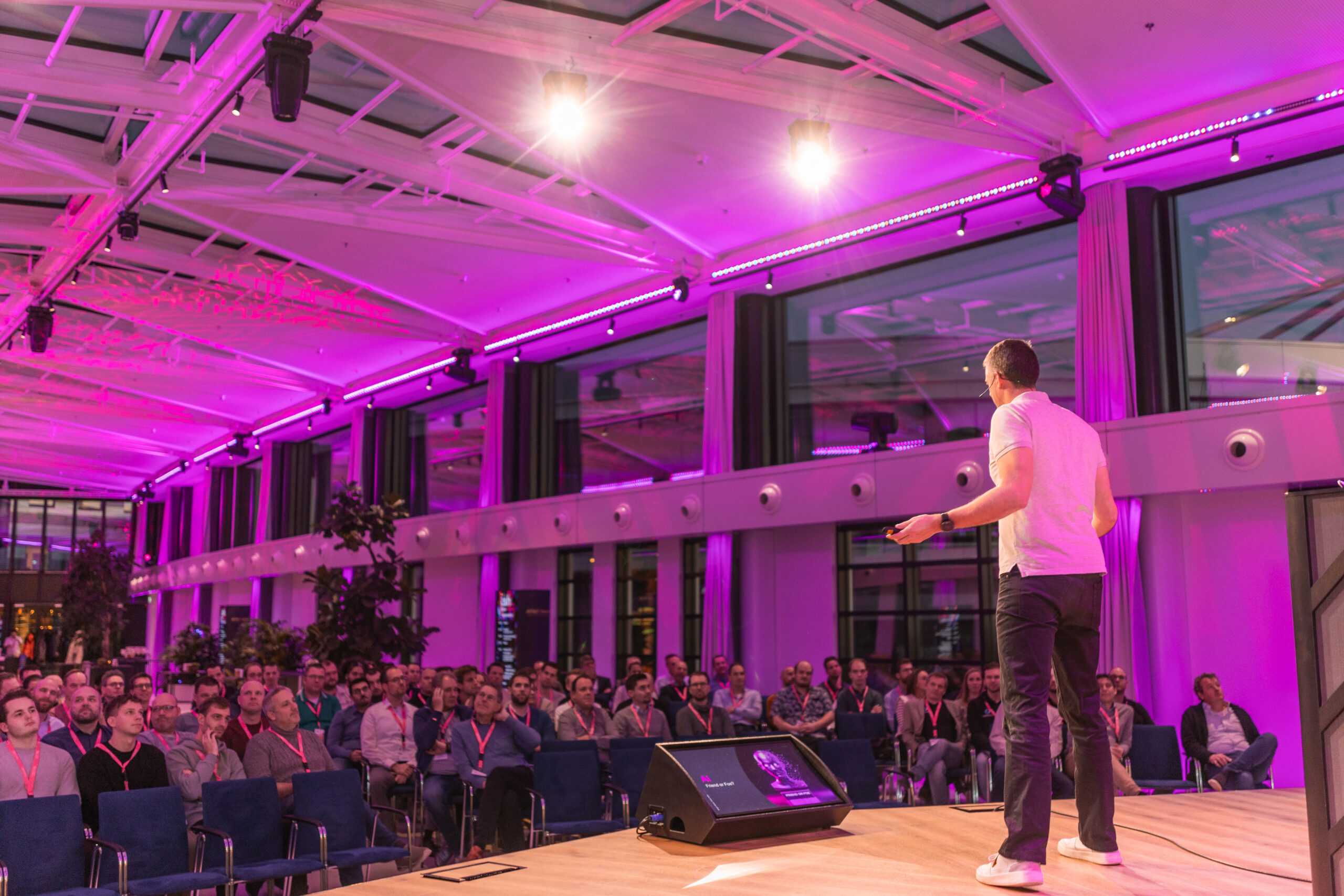Event report: TSH Tech Tracks - AI: Friend or Foe?
At TSH we put a lot of effort in collaboration and knowledge sharing. Especially when it comes to big trends or important innovations like AI, we believe that hosting a platform for sharing ideas and expanding your personal network contributes positively to our collective efforts. Furthermore, it improves both the customer and employee experience, because our companies remain a front-runner in new technology. That is why the second edition of TSH Tech Tracks, the event for the TSH technical community, was themed "AI: Friend or foe".
With a broad array of speakers, attendees were presented with a variety of views on different subjects regarding AI. The event was opened by John Reynders, CEO of TSH, giving an insight in how to enable innovation in a company through a cycle of experimentation and open thoughts regarding change. Of course, considering the “Friend or foe” discussion, there were also suggestions made on how to conduct your AI-experiments in a safe, compliant, and privacy-conscious manner. Using the right tools from the right trusted vendors, but mostly your common sense, everybody should be able to try and ride the wave of innovation we’re currently on.
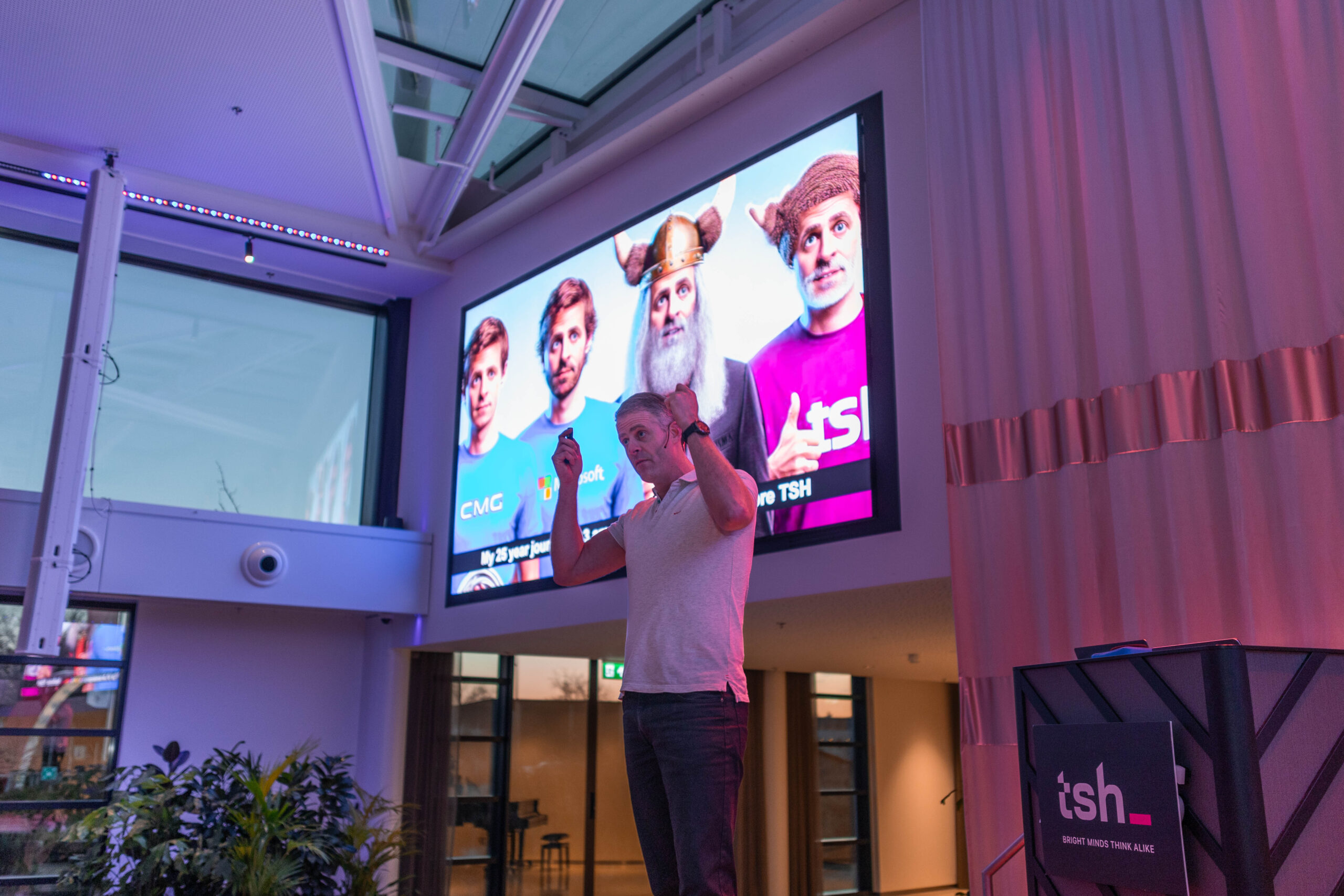
Sander Duivestein
The first keynote of the evening was given by Sander Duivestein. Sander is the author of the book "Echt Nep", and his talk was all about the current trends in AI. Setting a scene in which AI technology is consumerized and available to all, through small apps or handy websites, now everybody can play with AI. However, there is a dark side to this all. Because though AI offers a lot of benefits, there are also threats. Deepfake videos and doctored photos pose a risk to both society and businesses. In his presentation he showed concrete examples of how in some cases public debates have already been derailed by misusing AI, and even real economic impact and damage can be made through synthetic media.
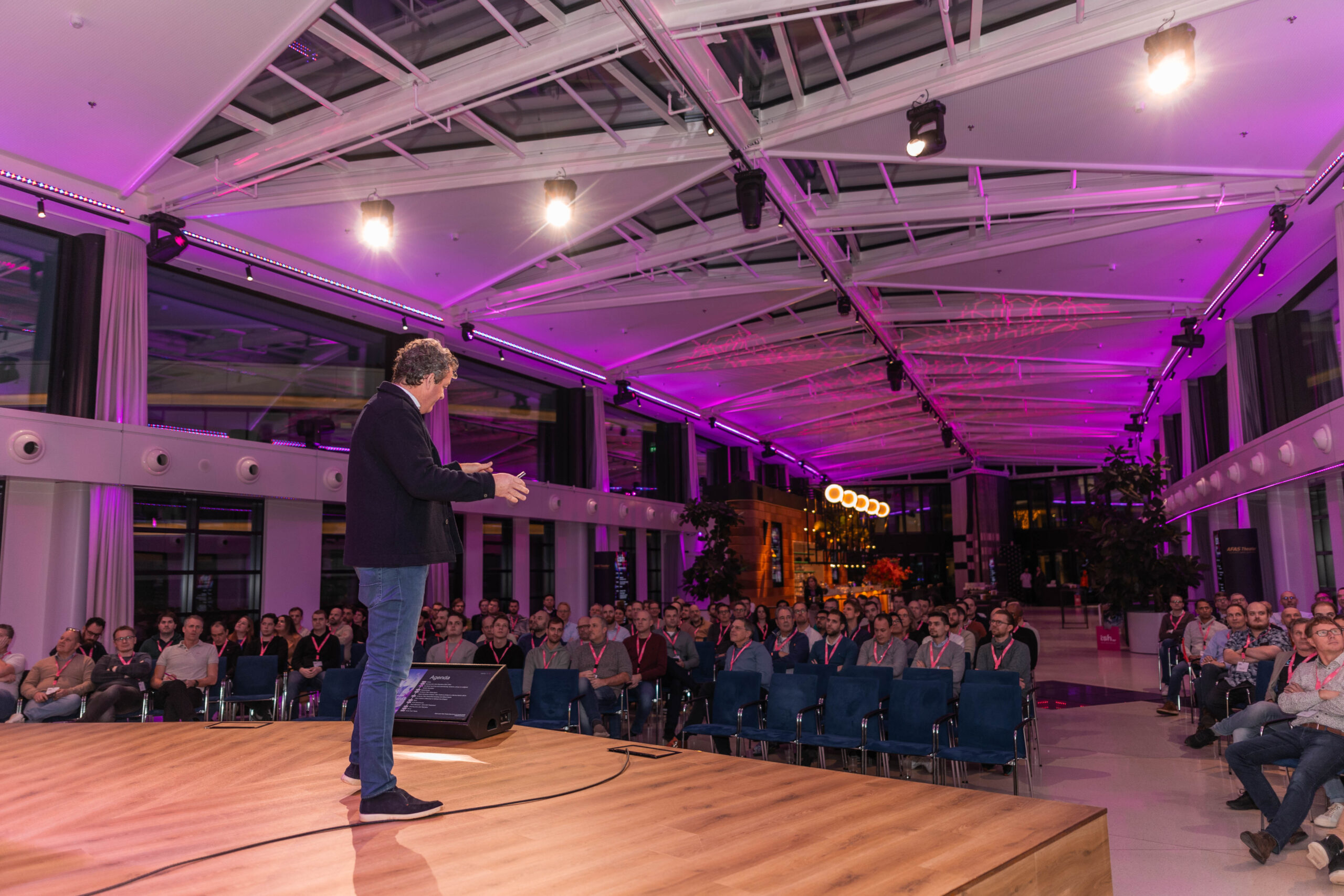
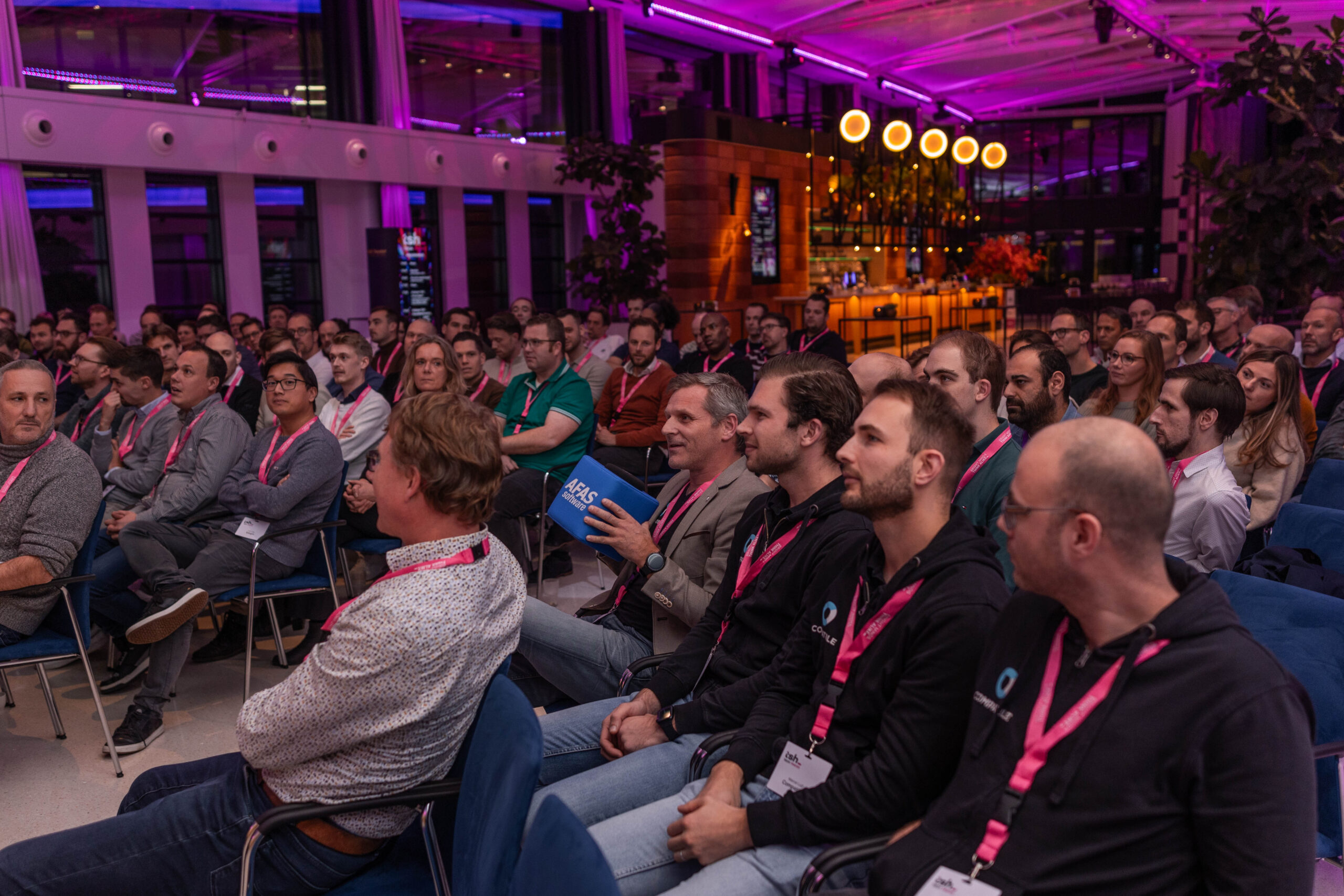
AI in practice at TSH
Next up, after a little break for socializing and coffee, it was time to hear from of some TSH colleagues who were already working with AI tools to improve their daily work.
It is no secret that in IT there is a high demand for technical personnel, and that raises the question if some of the work that has to be done can be automated, without deprecating the customer and employee experience. That is why a team of TSH developers started working a chatbot, trained to answer frequently asked questions. The bot can be trained to learn almost any kind of question and is also able to handle variant questions (i.e., differentiated spelling or word use). The team showed their progress and the results of a pilot project, offering promising results. An innovation that we are sure to hear more from in the future.
The second demo was given by developers from the Smarter 365 team demonstrating how they use GitHub Copilot, to support and accelerate their coding projects. They both shared valuable insights in how GitHub Copilot can help speed up development and gave practical tips as to how to maintain control of the output and quality of the created code. The team closed the presentation with a call to action, echoing John’s statement to experiment with this tool to find out if it fits your workflow.
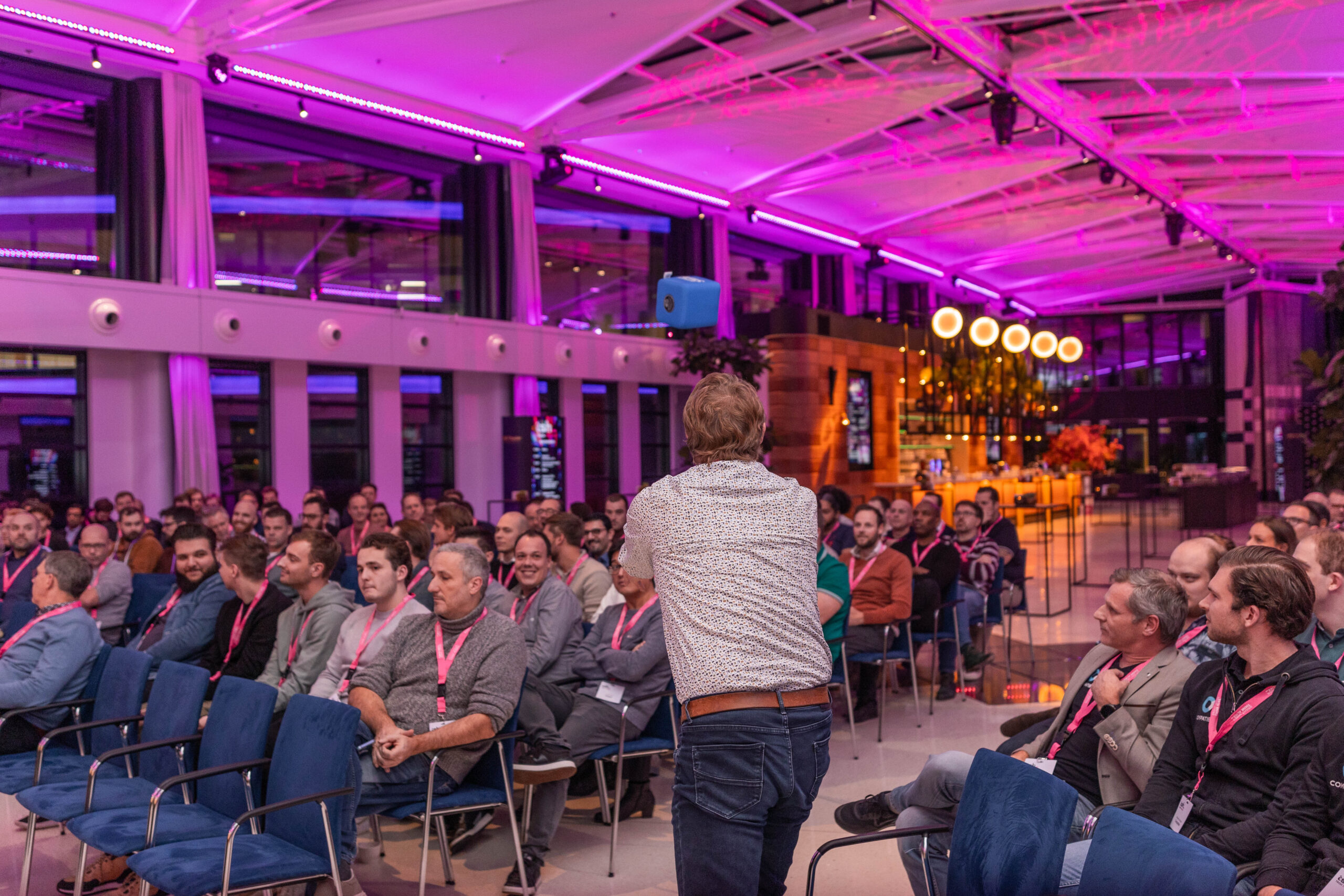
Dave Maasland (ESET) - The impact of AI on cybersecurity
The closing presentation was given by Dave Maasland, CEO of ESET Netherlands and often seen guest on Dutch TV when it comes commenting or analysing recent events in cybersecurity. Dave's story was one of both hope and fear. Starting off with a statement that sent a small shockwave through the room saying: "things are only about to get worse." The cybersecurity landscape has only just begun to experience the impact AI can have, and we are getting in an arms race to see how fast we can cover off new threats. Now here is where AI becomes both a threat and and opportunity. Because while AI offers new opportunities to cybercriminals, it also offers the defenders new capabilities. For instance we can harness AI to help comb through threat analysis or make faster decisions for intervening on a threat. His takeaway: the only thing limiting us when it comes to AI, is a lack of imagination.
